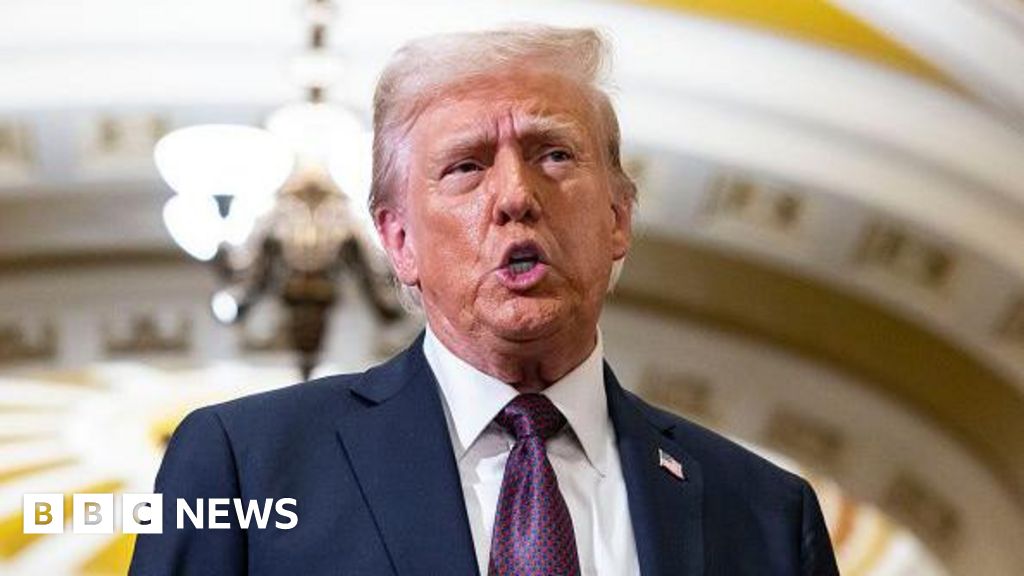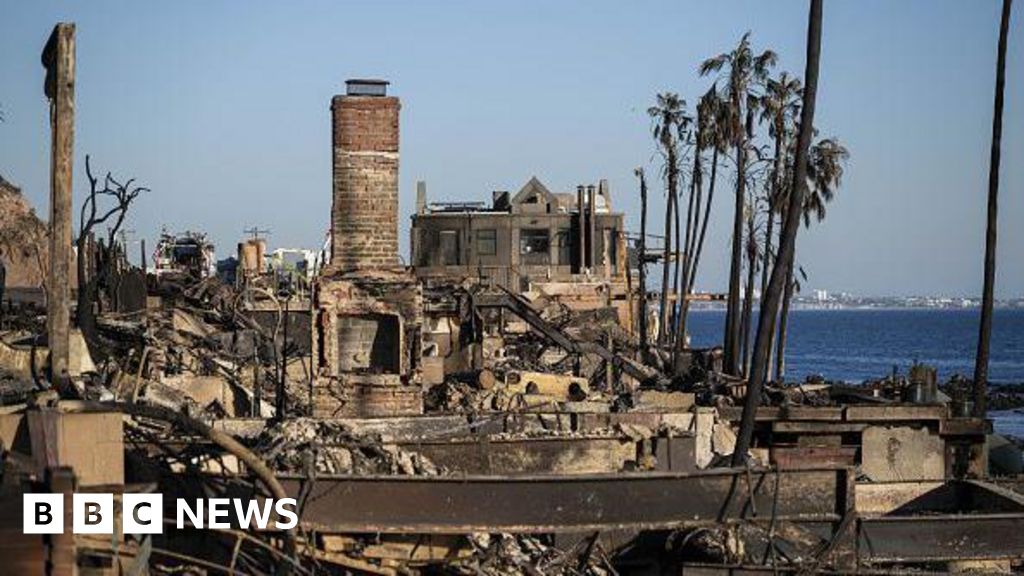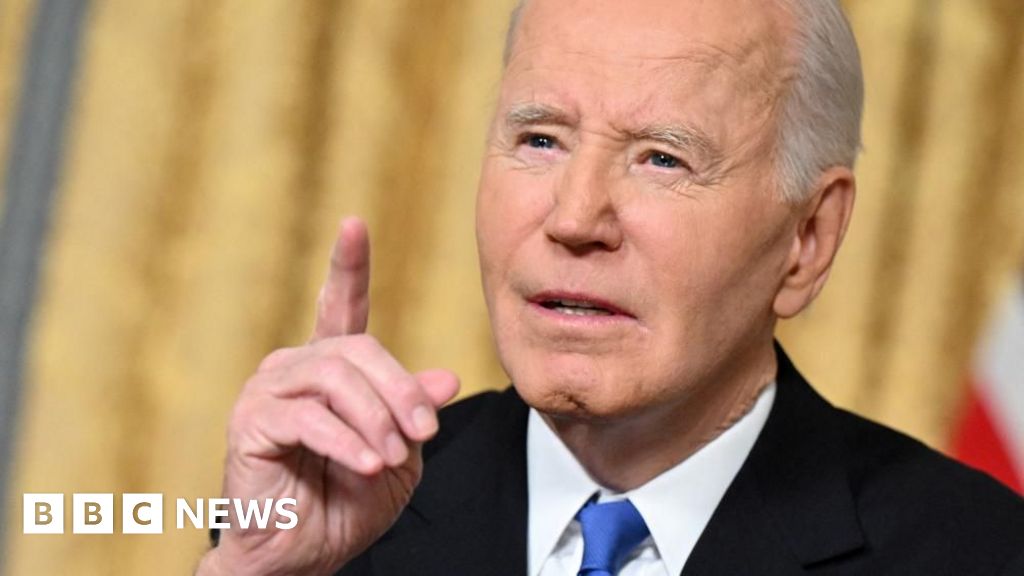ARTICLE AD BOX
By Sam Cabral
BBC News, Washington
Image source, Getty Images
Paediatric doctors could soon implement a US government plan to get some 28 million school-aged children in line for their coronavirus jabs.
Advisory boards to the Food and Drug Administration (FDA) and the Centers for Disease Control and Prevention (CDC) will meet in the coming days to discuss authorising the Pfizer vaccine for children between five and 11 years old.
Data from the company's clinical trials found that a paediatric dose of the vaccine - one third of that given to adults and adolescents - was safe and 90% effective.
If health officials approve the jab, 15 million doses will go out to paediatric offices, children's hospitals and pharmacies around the country.
When could jabs for young children be approved?
The Pfizer vaccine is already approved for American adults and adolescents, but it has not yet been approved for most school-aged children.
Among those between five and 11 years old, there have been about 1.8 million cases confirmed in the US, according to the CDC. Fewer than two hundred have died, and most of those had underlying medical conditions.
Some medical experts say that, given the persistence of the Delta variant and the return to in-person schooling, vaccinating children is a crucial next step in fighting the pandemic.
"Parents need to understand the urgency of vaccination because the pandemic is not over," said Dr James Versalovic, pathologist in chief at Texas Children's Hospital (TCH).
Dr Versalovic estimates at least 1,500 children have been diagnosed since the beginning of the pandemic with the virus at TCH, the largest children's hospital in the US. "No age group has been spared," he said.
On Tuesday, an independent advisory committee to the FDA will vote on whether to recommend an emergency use authorisation for the Pfizer jab for children between five and 11 years old.
The CDC will follow suit on 2 November.
What kind of opposition does it face?
Vaccine hesitancy remains a challenge for US medical authorities. Uptake in the adult population has stalled below 60% over the past several months.
Only a third of parents in a poll last month by the Kaiser Family Foundation said they would get their children vaccinated "right away". Another one third said they would like to "wait and see".
Some parents have expressed concerned about hundreds of cases of myocarditis, an inflammation of the heart muscle, that have been reported predominantly in young adults who took the vaccine, mostly after the second jab.
Dr Liz Mumper, chief executive of the Rimland Center for Integrative Medicine, thinks "children should not be given treatments they do not need", pointing to their low risk of contracting Covid and to the lack of long-term data on Covid vaccines.
"I am opposed to rolling these vaccines out to all children in a one size fits all model," she said. "The vast majority of children already have mild cases."
In an interview with the BBC World News America programme, an FDA advisory board member acknowledged it would be a tough decision to make.
"It'll be somewhat hard. We'll be looking at data on several thousand children and then making decisions for millions of children," said Dr Paul Offit.
What would a rollout look like?
The federal government has indicated that, once the vaccine is approved, it will ship paediatric doses to states almost immediately.
Last week, it announced plans to distribute the jabs via more than 25,000 paediatric offices and 100 children's hospitals, as well as through pharmacies, school-based clinics and community health centres.
The plan is designed to take into account that, for this age group, everything from dosing to counselling support from clinicians to the post-jab waiting period looks different than for other age groups, and parents will need a trusted voice in the room.
"It's one thing to have Dr Fauci on the national news say you should get your kid vaccinated, but it's another thing for a trusted physician in the community to have that direct conversation with families," says Amy Wimpey Knight, president of the Children's Hospital Association.
Mass vaccination sites are not good settings for jabbing young children, Ms Knight tells the BBC, so state and local health officials will need to quickly link up with schools, community centres and doctors' offices instead.
"All plans are local. That's what we learned the first time," she says.
Image source, Getty Images
Image caption, President Biden speaks to students in a New Jersey classroomDo doctors support the plan?
Patients at Texas Children's Hospital participated in Pfizer's clinical trials for children. Any side effects were "easily treatable and monitored", said Dr Versalovic.
"We are fully confident in the paediatric Covid vaccines. It's been tailored to children," he said, referring to the reduced dosage.
For a large provider like TCH, ensuring adequate supply at multiple care locations will be of primary concern, he said.
At smaller paediatric practices, physicians are a bit more circumspect.
Dr Robert Dracker, medical director of Summerwood Pediatrics in upstate New York, warned that a vaccine rollout for kids will collide with other realities: the onset of flu season, the mental health crisis of school children, and staffing shortages.
"Paediatricians' offices have been struggling terribly over the last few years," he said.
Dr Dracker says state health officials have set out guidelines and plan to dispense 300-dose allotments to his office. But he is frustrated by the lack of co-ordination.
"We have to try and contact all of our parents to find out how many of them might want their child vaccinated, and then set up separate clinic times," he explained.
"Instead of dictating what we have to do, [government officials] really need to listen to the input of practising physicians," he said.

 3 years ago
195
3 years ago
195








 English (US) ·
English (US) ·